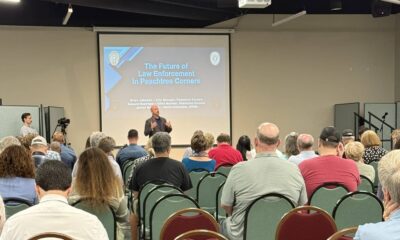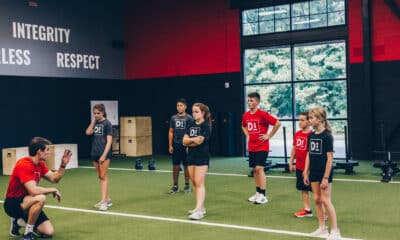Business
Capitalist Sage: Beth B. Moore, Bridging the Artist and Business [Podcast]
Published
6 years agoon
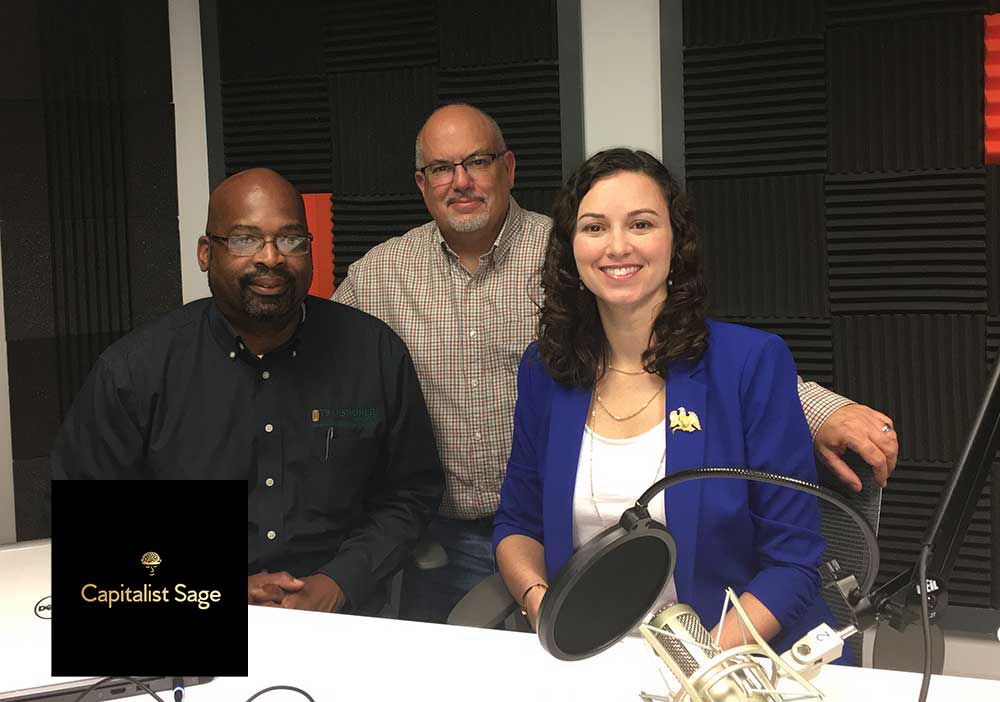
When it comes to the entertainment industry, there’s still a lot of trade secrets. Beth B. Moore is here to explain some of the trickiest and most useful laws within the entertainment industry. In this episode of the Capitalist Sage, we join Rico, Karl, and Beth as they discuss entertainment law, emerging trends, the film and music industry, Georgia legislation and more.
Resources:
https://www.vividip.com Facebook: Beth B. Moore, Entertainment Lawyer
Social Media: @bethbmoore
https://www.instagram.com/bethbmoore/
https://twitter.com/bethbmoore/
“I really find interesting the intersection of business, art, and law. And so where I am in my career allows me to explore that unique intersection. You know at some point in my adult life trying to figure out what I want to be when I grow up. I realized that you know aside from friends and family some of the most important things to me in my life was music and art.”
Beth b. moore
Podcast Transcript
Karl: [00:00:00] Welcome to the Capitalist Sage podcast. We’re here to bring you advice and tips from seasoned pros and experts to help you improve your business. I’m Karl Barham with TransWorld Business Advisors. And my co-host is Rico Figliolini with Mighty Rockets Digital Marketing and the publisher of the Peachtree Corners Magazine Hey, Rico, how are you doing today?
Rico: [00:00:54] Hey Karl, I’m good, thanks.
Karl: [00:00:56] Ah today is Halloween. So we have a lot of trick-or-treaters going out tonight. Hopefully if the rain cooperates, why don’t we introduce some of our sponsors today?
Rico: [00:01:07] Sure, a scary Halloween day we’re going to be, there’s actually. The scary thing going on for some startups because they’re going to have an opportunity to do a three-minute pitch. Five startups on November 14th its going to be part of the North Atlanta Tech showcase.
Karl: [00:01:23] That’s right.
Rico: [00:01:24] And that’s here at Atlanta Tech Park. That’s sponsoring us. This is the podcast room from that location. A partnership Gwinnett is putting this on and there’s going to be five, actually, nine startups doing a three-minute pitch to others, to investors and other people within the industry. And that’s going to be scary for them because they got three minutes. It’s worse than the Shark Tank at least, at least in Shark Tank you had like, I don’t know 15-20 minutes. Here it’s only three minutes to make that pitch. So, but Atlanta Tech Park is the place they’re doing it. This is a phenomenal here in Peachtree Corners. It’s a great place along the track of the autonomous vehicle.
Karl: [00:02:01] Right here in curiosity lab right here in Peachtree Corners Atlanta tech park being a home for entrepreneurs. Tech, tech startup companies so it’ll be great to see those come in. And if you’re interested check out the website you could, you could register come visit that day and see some of the future entrepreneurs of right here in Gwinnett County. At the Showcase.
Rico: [00:02:24] PartnershipGwinnett.com or AtlantaTechPark.com will take you there.
Karl: [00:02:28] So we’re glad to have Atlanta Tech Park as our home for for the podcast and we’re especially glad today to have a fabulous guest. Bethany Moore. She’s in a an attorney that specializes in entertainment law and intellectual properties. And today we wanted to talk to those folks out there that have lots of creative talents and their endeavors takes them into both entertainment and artistry and look at the business side of those types of careers and businesses. I know we speak a lot about the the talent that people have. But they may not realize that they are also a business and we figured, let’s chat about that some and Beth was more than gracious to come and spend some time and talk to us about that. Hi Beth how’re you doing today?
Beth: [00:03:15] Hi. I’m doing great. Thank you for having me out on this fun and festive Halloween Day.
Karl: [00:03:20] Absolutely fabulous that. To get to explore a, you know on Halloween. There’s a lot of artistry that goes around this holiday season typically, but I’d like to start off by, you know, I’m curious how you got into this particular area and field of law when you got started.
Beth: [00:03:40] Sure. Well, you know, I consider myself an entertainment attorney and that does include, you know clients who work in the music industry, film, television, book publishing, theater. Really anything and everything involving the creative arts. I like to tell people I get to have the most fun a lawyer is allowed to have. You know, and it is a lot of fun, but it’s also a lot of work and there are serious legal considerations when it comes to working in the entertainment industry. I really find interesting the intersection of business, art, and law. And so where I, where I am in my career allows me to explore that unique intersection. You know at some point in my adult life trying to figure out what I want to be when I grow up. I realized that you know aside from friends and family some of the most important things to me in my life was music and art. You know, there’s, there’s really a historical reason for the significance of music and art if you look back on the development of humankind, you know these things, you know, we developed along with music and art. You take a trip to Europe. What do you do? You go to the art museums you take in the local culture, the music, the architecture. So, you know, this has been a common thread throughout the entire life cycle of humankind and it’s something that I take very seriously and it just means a whole lot to me as a person.
Karl: [00:05:05] I always wonder when we think about that some people may not realize. That they’re in this creative art. I mean, I think it’s obvious musicians and it’s obvious maybe people that are in theater or actors and so on. When you talk to clients and folks that are in it, what are some of the other fields that people may not realize falls into these creative arts that where the electrical property and so on becomes really important?
Beth: [00:05:34] The beautiful thing is that art is everywhere. It’s everywhere. You can take any business that may be operating, you know with a logo and a trademark, you know, that’s you know, a common thread among all businesses regardless of what type of Industry you’re in starts with the copyright involved in the you know, any kind of unique image being used as a logo. And then there’s always you know the application to obtain a federally recognized trademark. That’s also part of what I do. And I can really do that for any business. But I specifically focus on those services for clients in the entertainment industry. You know art is you know is a consideration in an industry as large as advertising. You know, I’ve had to work with a lot of advertising companies to make sure that the artwork they want to use or the music that they may, you know that they may use in their television commercials that all of those are cleared and legally cleared to use. So considerations of intellectual property are everywhere and it’s certainly especially in the entertainment industry.
Karl: [00:06:40] If you think of it from the side of the artist that’s producing that. What are things where you’ve seen people they may call you after the fact where they make mistakes or things they didn’t know as they’re producing and creating art and starting to share? What are some of the things that you the mistakes people make along the way?
Beth: [00:06:57] How much time you got? So, you know the music industry it, which is really my true specialty even within the umbrella of the entertainment industry. You know music is one of those things where it’s it feels good, you know, I mean, it’s a creative outlet for a lot of people. You know, they may not be thinking about making a career out of it. You know, everybody has to start somewhere and usually means starting out. As a hobby. You know, you pick up a guitar or you find a keyboard at the Goodwill and you know, you start making music that’s a beautiful thing. You know, I hope that all children and even adults get a chance to explore, you know, their inner musician. I think what naturally happens is for a certain group of people that that hobby progresses into a profession. They’re like hey, I’m actually pretty good at this and people like what I’m making, you know, maybe I can spend all of my waking hours making music and you know earn some money from it and make a living doing it. So I find that that transition can be really challenging for a lot of Music Makers. You know, primarily because if you’re, if all you’re doing is making music then chances are you may not have a big enough budget to hire an attorney, but by entering into this space without proper understanding of legal underpinnings of it and without having a legal advocates tell you what your rights are people end up, you know giving away their music for free. You know in a way that does not advance their career. They end up getting taken advantage of you know, by people who know just enough to be dangerous and to cut you out of the equation.
Rico: [00:08:35] Let me ask you, what are two or three things that the musician should know right off the bat that they should do to help protect themselves? If they wrote a piece and they’re playing it but they’re not disseminating a jet. Short of YouTube Instagram putting out the music, what two or three things should they be doing to make sure it’s protected and someone else can’t use it?
Beth: [00:09:00] So there’s a couple of things that come to mind, you know first is having a firm understanding of the legal term copyright, you know, this is a term that a lot of people throw around thinking they know what it means and most people don’t. You know, one of the most important things to understand about copyright is that you know, if you are creating an original work of art and it’s tangible, in other words it exists in some way shape or form on this Earth other than just in your human mind, then you own a copyright to that work the moment it’s created. You do not have to file a federal copyright, certainly a good idea to, but you have rights in and to your work the moment you birth it into the world.
Rico: [00:09:40] So if I wrote a song and I put it out there on Instagram or Facebook, that’s tangible, right?
Beth: [00:09:46] Yeah.
Rico: [00:09:46] I mean, that’s a recording. That’s right out there.
Beth: [00:09:48] That digital file on your computer or more perhaps on your phone is a tangible embodiment of your work, right? And you have rights to that just as you know, everybody else has rights to their work. So be careful whose work you try to pass off as your own because those whoever created that work has rights to it. So that’s maybe the second mistake that people make is they see rampant copyright infringement happening out there in the world which gives a lot of people the false impression that it’s okay when it is not. You can get yourself into a lot of hot water, you know, if you try to sample somebody else’s work and if you misappropriate somebody’s work, you know, if you think I’ll just slide in this sample real quick and nobody will notice because it’s under five seconds. That’s not how the law works.
Rico: [00:10:34] Because cover bands work. Those cover bands are out there playing other people’s music, I mean.
Beth: [00:10:40] There is a precise answer to that which is that the people who wrote the songs that the cover band, you know is covering have granted a license to what are called The Performing rights organizations, which then turn around and Grant a license to the restaurants and venues. Of course, the restaurants and venues have to pay for that license but once they have it they’re allowed to play any song that they want.
Karl: [00:11:03] Let me if I can just understand and clear, a business owner and they are playing music in the background of whatever that store is. Do they have to either they have to pay for the right to play the song in their place of Commerce no matter what type? If it’s a doctor’s office playing the elevator music is that all covered?
Beth: [00:11:27] Yes, absolutely. Now, I have counseled business owners including restaurant owners about this where you know, they just want to play the radio in the background or they’ve you know, they have a Spotify account and they wonder why can’t I just play this? Well, it’s because the people who wrote those songs own the copyright of those songs and what those business owners are effectively doing is using somebody elses copyright to sell coffee or to sell golf club, right? And if you’re going to do that, you should you know, you should have to pay the person that’s helping you create this commercial atmosphere that draws in customers and they do.
Rico: [00:12:01] That’s funny because I’m, as she’s saying that I’m thinking starbucks and I’m thinking of those little music cards they used to have at one point with musicians on there of that they would be playing. And I think they, that was sort of a give and take a little bit on their part to be able to play music in the background of some of the bands that they were promoting and Starbucks music in house. Then I thought about the Jukebox. Real time, you know, slide the quarter in this. After that went away, I think that’s when royalty would really like going.
Karl: [00:12:29] So in Rico’s initial example, he creates a piece of music and he puts it on YouTube and if I were to find it in a business and start playing the music on YouTube is the, should he do something to make sure that his rights are protected. 1 and 2, he may be able to be compensated. What should he do?
Beth: [00:12:53] Yes. So as a songwriter Rico, what I would advise you to do is to join one of the
Performing rights organizations and in the United States, we have three. ASCAP, BMI and SESAC. When you do that as a songwriter, you know in some ways, you know that helps to, you know, memorialize or put the public on notice that you are the author of that song. You are the creator, the owner. You know and so you can look up right now anybody out there listening can go to one of those three websites and look up their favorite song and find out who the actual writers are. You might be surprised, right? Because the person that you think wrote the song might not be the person who actually did. And so, that’s what you would do as a songwriter you would affiliate with one of those three organizations and in turn those organizations will represent you. When a restaurant owner comes to them wanting to play music. So the organization let’s say you joined ASCAP. ASCAP will issue a license, right? A license is just a fancy word for granting someone permission. ASCAP will license the right to the restaurant owner to be able to play any song in the ASCAP catalog that they want and your song will be listed in the ASCAP catalog.
Rico: [00:14:10] So you’d just pay one royalty or monthly fee or whatever it is. You can play any song within that set up.
Beth: [00:14:16] Exactly. Yes. It’s usually an annual fee. Yes, and the restaurant owner would do well to seek out licenses from all three organizations because chances are any song you want to play is going to be represented by one of those three.
Rico: [00:14:28] I guess muzak came out at some point to avoid all that right? Because it’s regular, it’s like a synthesized music has nothing to do with any copyright at all.
Beth: [00:14:40] It actually ties in perfectly with what I’m talking about because what Muzak did if I understand correctly is they had their licensing fees built in with the PRO fees right, so it was kind of a digital service that delivered the recordings but also included the permissions for the underlying compositions.
Rico: [00:15:01] Okay, so it’s all in one place and that’s why you could use Muzak anywhere.
Beth: [00:15:05] Yeah, and you know, it’s Spotify and Pandora,I believe, have commercial subscriptions now for places of business. So you can get licenses for everything all in one place.
Rico: [00:15:16] So when you play Apple music, you pay an apple fee every month for my Apple music. I can play any song, download any song within the Apple Library. That’s, which seems to be almost every song in the world. But so I’m not paying anything more than that monthly fee, right?
Beth: [00:15:33] Well you’re talking about personal consumption.
Rico: [00:15:35] Yes.
Beth: [00:15:36] So that’s different. Very, very different from commercial consumption.
Karl: [00:15:40] So if you’re a business owner, you may have a personal Spotify, Apple music, Amazon account that allows you to play all the music. But when you bring that into your business, and you’re using it within your business, you’d have to get this additional license to do that.
Beth: [00:15:59] Correct. It’s called a public performance license not to be confused with live performance. It has nothing to do with live performance. Public performance means that somebody’s music, specifically somebody’s composition, is being performed in a public space. A place of public accommodation. Which commercial places are, right? You know Starbucks is open to the public. Target is open to the public. Airports are open to the public. All of those places that want to play music in a public space, has to obtain a public performance license.
Rico: [00:16:32] Content sent to the plant.
Karl: [00:16:34] So with all that would Rico get paid then, from that the group that he’s a member of, that he’s paying some fees to.
Rico: [00:16:42] The bottom line.
Karl: [00:16:43] The bottom, he would then get paid for some percentage. How’s that done?
Beth: [00:16:49] Yes. So there’s two royalties, you know, depending on the situation. One royalty may be available for the recording artist. So that might be the person, you know, whose voice you actually hear, you know whose guitar riffs you were actually hearing. But there’s a
separate designation for who the songwriter is, right? So in this case Rico being the songwriter, yes, he would be in a position to earn royalties. From you know for every time you know Starbucks or Target or the airport you know played his music. The algorithm by which an organization like ASCAP uses to determine how much you get paid is a trade secret. We don’t actually know but we can surmise that it at least has something to do with how much of the real estate of the airwaves, you know, you occupy. The more your song gets played the more royalties you’ll receive.
Karl: [00:17:43] That’s very very interesting. Does it expand out beyond music? So if let’s take writings, and now we get digital media. People are putting out cat stuff on YouTube and creating funny videos, cartoon videos, explainer videos. Are all of those…
Rico: [00:18:01] Or even doing a public service where the news media recording a crime just happening and then they sell it to CNN. I mean, do they have copy right on those things?
Beth: [00:18:11] Yes, yes. And if any kind of original creative content you that you birth into the world belongs to you. And that would include, you know, silly cat videos. You know, it may just be something that you created at home. You probably have hours and hours worth of cat videos, but you have that one little clip where they did something funny. That piece of video, that audio-visual work contains a copyright. And the owner of that copyright is the person who created it.
Karl: [00:18:37] And there’s, there isn’t a similar organization for video, for writers, for all these different creative types of art. There’s a similar organization that manages that for them as well?
Beth: [00:18:52] No, but that would, that sounds like a wonderful idea. Right now, it’s really, you know, if I have a silly cat video and you want to use it, you know, for the Peachtree Corners podcast, then we would do an arm’s length transaction. You know, for what that licensing deal would be. Whether you pay me or I simply agree to grant you, you know royalty free license. Right now that’s something where you would have to approach the copyright holder directly to get that, get that permission.
Rico: [00:19:19] There are protections in place. And although there was, I was involved in a website that was done once and we used stock photo as position only. Because eventually we’re going to remove the stock photo, put real photos on there. Two years later a lawyer reaches out and said that there’s a stock photo on that site you never purchased. How did they know it was never purchased, I don’t know. But they wanted their fee and they wanted it removed. But they wanted their fee at least to be paid. So there are protections, at least the free market allows protection in place for some things, right?
Beth: [00:19:53] Well, you just perfectly identified one of the issues that modern-day content creators are facing. Is that, and it kind of goes back to the question you asked earlier, what’s one of the mistakes that people make in this industry? And its really disseminating, you know, their content without thought as to how to control it. You know, it’s like once something is out there it’s darn near impossible to retract it, right? So we have had to as an industry get really creative in how we monitor, you know, the use of our content. You know, make sure that anybody who is the recipient of a license that they stay within the confines of that license, right? So there are guard rails you can do this, but it doesn’t mean you can do that. And so there are little bots that you can put out into the internet to find out, you know, where did this Photograph go, right? And there are, certainly there are ways to get around that you know, but there are really sophisticated ways in which attorneys, you know and firms that represent content creators can track the usage of that content around the internet. I’d really like to see a more uniformed system to make that happen. I think that maybe blockchain might reveal some of the ways in which we can do that, but that’s maybe a future development.
Karl: [00:21:11] I mean you’re trying to tap into something that it seems an interesting area of policy, government policy. So you’re also part of the Georgia sledded legislature representing, the district is 1995 here. Are there legislations that’s happening locally or federally to help corral what’s happening in this area. Especially with the internet because I see so much content being generated and I haven’t, I can’t imagine how someone could begin to manage and regulate all of that.
Beth: [00:21:56] I think when it comes to managing your content and policing it, you know, I think one of the most important things anybody can do is just first to understand what your rights are. Hopefully they’re listening to your podcast today and they’re starting to pick up on the importance of this. As far as legislation goes, you know, we’re very fortunate in Georgia that about 10-12 years ago. We passed the, what is shorthand called the Georgia film tax credit, you know, which has been a great development for our state to attract the film business here. You know that is an engine of content creation, which has really been great. And so, you know down at the Capitol we’re certainly always, you know, in defense mode of that tax credit. You know, I think that it has so many benefits that we can’t even really measure. That really, that played a
very important role in my decision to get involved in public policy and to run for office. You know, I did not get into politics through politics. I got into it through the Arts and entertainment industry because I see firsthand how smart state policy can really shape an entire industry and change lives. You know, bringing thousands of new job opportunities to Georgians and helping to develop a generation that has grown up with film and creativity and appreciation for the Arts right here in our own backyard. Georgia has a good history of you know of legendary music and I’m glad to see that happening now in the film industry. I bring up the film tax credit because there is a bill that has been proposed to create, well I should say a couple of years ago, they did pass what is shorthand known as the music tax credit. To essentially grant the music industry some of the same benefits that we granted to the film industry and to try to make sure we have more film business here. We certainly have a lot of talent in Atlanta, but anybody who’s been around the music industry in Atlanta will tell you that we lack some of the upper echelons of the business here. Which you know that like a lot of the record labels that used to be here have left or folded or just gone under. And so, you know, there’s lots that can be done to incentivize, you know music touring. That touring should originate in Georgia because that generates lots and lots of jobs. So they did pass a version of that bill before I arrived in the legislature. There are some issues with that bill. For example, it does provide some tax credits just like the film tax credit. The difference is in under that music legislation, those tax credits are not transferable. The transferability of those tax credits is key.
Rico: [00:24:47] Transferable between businesses if they were purchased?
Beth: [00:24:49] Correct. Because the concept of a tax credit is that it gets applied to your next project, right? So, you know, so some film companies may come here, make a film, they get the tax credit. Well, that has value. They can actually sell those tax credits to another company so that they can actually receive text benefit if that Film Production Company doesn’t otherwise have another project going on, right? And so the same could be true of the music tax credit. We created this incentive for production companies and for touring companies to bring their business to Georgia, but we did not make them transferable. And that makes…
Rico: [00:25:29] Why did they? I mean, is there an another rationale that if it’s transferable maybe that business doesn’t come to Georgia? I mean is there a reason why?
Beth: [00:25:38] You’ll have to ask the legislators who were there before me. But my understanding is that there was some hesitation about the bill to begin with so they thought well, let’s just get something on the books and we’ll fix it later. But we’re now in the Fix-It phase. But we have encountered some pushback there even though I do think that these are, these are common-sense changes that have bipartisan support. And I really want to encourage the the Arts entertainment working group who currently is vetting that bill to favorably pass it out of their committee. So it can go to ways and means.
Rico: [00:26:14] Can I ask you about the trends as far as the movie industry goes? Because there’s always that talk that those credits will go away. And people are fearful of that because then if that goes away, where’s all the production go? You know, that’s what happened to I think it was South Carolina?
Beth: [00:26:28] North Carolina.
Rico: [00:26:30] Where they nixed it. And then a lot of their industry just went away.
Karl: [00:26:33] They came to Georgia.
Rico: [00:26:35] Yeah, which was good for us now. But there’s still talk, I think when Kim came in there was some talk at some point. About his campaign about him wanting to do that, about removing that text printed. Do you see any trends there heading that way?
Beth: [00:26:48] You know every public statement that I’ve heard Kim say suggest that he is in support of continuing that tax credit. You know, some of his administration’s actions this year would suggest that maybe they don’t covet the film industry as much as I wish he did. You know because everything kind of works in an ecosystem, you change one thing about Georgia law that has an impact on other areas. And I have serious concerns about things like HP 481, the anti-abortion bill, you know. Which you know, a lot of people don’t want that here in Georgia. They think it is anti-business. And the film industry for the most part agrees with that but I don’t want to make a blanket statement about the film industry there’s certainly, you know, a multitude of political beliefs and affiliation within the film industry itself. You know, so one of the challenges that we have with the film tax credit, the reason we always have to play defense on it, is because if you look at pure numbers, you see how much the tax credit quote-unquote costs in terms of lost revenue and you might see well that certainly is a lot of revenue that we’re losing. You know, you might question are we even breaking even on that? Is there a return on that investment? And I think it’s really hard to measure that because if you do away with the film tax credit all of that production business goes away, right? There’s, I mean and to me that would be a much larger hit to our state’s economy than if you just looked at how much the tax credit costs in terms of real dollars.
Karl: [00:28:15] I could echo that and I see it. All of the film business that moved into, Georgia generates additional dollars in support. If you look at from a real estate standpoint, AirBnB, since the film industry come and has taken off people that are investors in that part of the economy. All these folks need to be fed. So restaurants catering food, they need signage, they need support. But what I think is really, really understated is the longer the film industry exists here in Georgia. We’re building another generation of folks that are supportive of the Arts, skilled in the arts, able to create films which are jobs. Businesses tied around this other industry. If you look at what it did for California, how many people that live in California are artists are coming in there because the option is there. In New York City to film all where theater is really big and film, there’s a lot of artists that live and support and businesses that go there. It could be short-sighted to look at that how it impacts the other parts of the economy when you look at that. But I see small business owners that generate a lot of business from supporting the film studios here in Gwinnett County. There’s at least three of them that I know of that are driving economic activity. But I see young people choosing career paths that weren’t available 25 years ago before that was here.
Rico: [00:29:49] That’s right.
Beth: [00:29:50] Yeah, I think you nailed it. You know, I’ll add a couple of more long-term views to this. You know, one of the things I love about the film industry is that it has relatively low environmental impact, right? You know people come in, they make a production, they don’t leave a permanent footprint with one exception. That you know, it can sometimes create a lasting legacy for some of these locations. For example, Rabun County, you know 30-40 years later is still known as the birthplace of Deliverance. And it’s kind of a local draw, right? Yeah and Senoia Georgia, home of the Walking Dead. I mean, you know, this generates you know additional ongoing opportunities in terms of film tourism. You know, I can draw some of those hardcore fans to locations like that. So I think there’s all kinds of benefits, you know. And another one is a lot of people don’t realize that Atlanta is a hotbed of advertising as well. The advertising community in Georgia is incredibly robust. Well, if you think about you know, the life cycle of a film or television show it’s short-term. You have people with these amazing talents in terms of on-screen Talent or behind the screen. You know in front of the camera, you know Gaffers, lighting, sound, all of that. Well when they’re not working on a film and television production a lot of those guys work in advertising, right? So, you know to have those two industries able to kind of coexist side-by-side strengthens both of them.
Karl: [00:31:25] Have a friend that’s a camera, Steadicam operator and he does films and so on. But in between jobs, he does a lot for commercials, advertising. But that would be harder to find folks like him if the industry didn’t start generating the skill set in this capability within the market here.
Rico: [00:31:46] It took it took a decade, right?
Karl: [00:31:47] Yeah.
Rico: [00:31:48] I mean there was hardly any, just creating props for film sites, or electricians, or woodworkers, or HV AC, or you know, I mean those. As much as we have that industry room to build that infrastructure for the film industry is taking a decade to get there.
Karl: [00:32:06] So I’m curious. I know these arts start when you’re young. Entertainment, whether it can be Sports, it could be music and art. And there’s parents out there that have no real knowledge of how to guide and advise there. What would be some places where parents and people starting out in the business can start to educate themselves? One, about the rights that you mentioned about that they have but really, you know, understanding what are some of the things they need to start putting in place as they’re starting to develop these talents and start putting it out there. Where can they learn more about that?
Beth: [00:32:40] Well, they can certainly come see me. It actually is quite common that when I am representing somebody who’s maybe a legal minor or you know is still very young, you know, the 18 to 21 range. That their parents will take, you know, almost an ownership stake in their career. It’s kind of, entertainment is kind of unique in that way. You know, if you go off and become a scientist or a lawyer your parents don’t usually get involved. But when it comes to entertainment, it’s arguably a good idea. Because so many people do get taken advantage of and if you know if your child is getting involved in film and television or music, you know, they really need somebody that they can trust to look out for their best interests until the day when they can fully you know, understand and appreciate the legal complexities of what they’re doing. You know, certainly a minor child cannot enter into a contract without their parents consent. There are all kinds of labor laws, you know for minor children on film sets. So I think there’s a lot that parents can do to. First encourage their children to explore the Arts. You know, it’s okay to you know, just you know to make mistakes. It’s okay to just experiment, you know, whether it’s with some kind of visual media or with film and television. I remember my parents have always had a video camera around and so, you know, that’s where I kind of got started in high school was we’d have a class project and I would make it a film. I still have those, by the way. And you know, it’s little things like that that just kind of build up over time and it ultimately impacts the career decisions that your child makes. So, you know I’ll throw out a pitch for myself if you want legal advise parents, you are welcome to come in to be an advocate for your child. You know, you can always in place of your minor child join some of the professional organizations that exist in Atlanta and around the country for various professions. So for example, the music industry,
we have the recording Academy, otherwise known as the Grammys, right? That’s a great networking opportunity, great networking organization. But they also do a lot of educational panels. There are equivalents in the the film industry. Its Georgia Production Partners is one that comes to mind. The Atlanta Film Society puts on the Atlanta film festival and they do a lot of Education Workshops. Yeah, you know if your child is into gaming there’s a Georgia game developers Association there. There’s a lot of parent can do you know to encourage their child and to protect them. And even one of the best things that a parent can do is just to you know, while their child is having fun creating, you know art. You know, if it seems like they’re moving in a direction of that becoming their profession, you know, it’s never too early to start talking with your child about what it means to have a business. You know, what it means to turn their art, you know into money. What it means to make a living in the entertainment industry because there’s not a lot of people that are in a position to have that conversation with artists and I really wish artists had the opportunity to have that conversation more often.
Karl: [00:35:59] I’m curious. Did you play many instruments or do music or what was your art of passion growing up?
Beth: [00:36:06] I played clarinet in sixth grade band. And I play just enough piano to get by but I actually don’t have very, you know, a whole lot of musical talent myself. Which is partly why I do what I do because I very much wanted to be involved in the Arts and entertainment industry but I had basically no artistic talent myself. So I thought well, what’s the next hardest thing I can do. And I thought well, I’ve always you know, I’ve always been good at school. I will go to law school and become an advocate for people in the Arts and entertainment industry.
Karl: [00:36:42] Oh, that’s fabulous. I know I was talking to someone a couple weeks ago and they create music on their laptops like so many people do. He does it for fun. And he spends hours and I could think of how many kids do that today.
Rico: [00:37:00] The software on there you can do your own beats, doing all sorts of stuff.
Karl: [00:37:04] They’re doing their own videos and so on but that conversation are early on, you know with their parents on starting to think about the business side of what they’re producing is an opportunity that could guide them. Because when they’re making choices under it’s fun and it’s a game for them when you’re younger, but some of them have some talent and starting to think about putting those things in whether it’s joining the organization, you mentioned. Having a conversation with an attorney that specializes in this so they can make the right choices early on. I always feel once their talent explodes all of a sudden everyone’s grabbing for pieces of it and they’re not prepared in those first few deals or the first few meetings they have. They’re not equipped to understand their rights and how to do that, so.
Rico: [00:37:55] You know, it’s funny because it’s some Industries like acting right to you do have an agent. You have to have an agent to be able to close a deal on an acting gig with the company, right? So some Industries you have some protection you still need a lawyer though everything right?
Karl: [00:38:09] Absolutely. Well, I really want to thank you. You’ve given us a lot to share with folks that are starting to look at these creative arts and understand the business side. But just curious, you know, do you have anything coming up or things that are coming up as we’re getting late into the running out the final part of the year. Anything that you’ve got going on?
Beth: [00:38:34] So a couple of things. You know between now and the end of the year and before the next legislative session starts is I’ve been doing a lot of outreach with some of the larger film studios in town. We just toured Eagle Rock studios in Norcross the other week. I actually have a friend who works there and he was excited about me running for office and he knew what I did for a living and said hey why don’t you come down to the studio. So we finally made that happen. It’s an amazing operation that they have going on and you wouldn’t even know it. It just sits in the, in a quiet industrial park in Norcross. So we’re, going to be touring Black Hole in a couple of weeks. We’re waiting to hear back from a couple of Studios. I mostly want some of these studios around town to know that they have an advocate at the state house, right? You know, I am the only legislator in Georgia, the only elected official who actually works in the entertainment industry. It’s a topic that a lot of people down at the Capitol like to talk about but I actually bring that professional experience to the table. Beyond that we have the Esports Summit coming up, you know, this is kind of a new tangential area of the entertainment industry that has really excited me and fascinated me and I’m looking to get more involved in the game industry here. So I will be at the Esports Summit. It’s kind of adjacent to Dreamhack which is coming up and…
Rico: [00:40:02] It’s running at about the same time.
Beth: [00:40:04] Yeah, it’s a first it’s the Esports Summit and then kind of leads directly into Dreamhack. So it’s that weekend of November 14th through the 17th.
Rico: [00:40:11] The public’s allowed into dreamhack. So, I mean that’s a great place to go if you’re into gaming I mean it’s phenomenal. Thousands of gamers go in there.
Beth: [00:40:20] It is. It has become the largest Sports industry, you know, eclipsing all of the others. It’s remarkable and I just, I know there’s a lot of young people there and I want to make sure that when they enter into contracts with some of these teams or they enter into some of these contests that they have protection. So I’ll be at that event and I look forward to hopefully meeting some people there. You know, my office is here at Atlanta Tech Park, so I’m not here every day, but if anybody’s up here at the park, feel free to seek me out. I’d love to chat with you.
Rico: [00:40:53] They can find you on Facebook at Beth Moore Entertainment Lawyer.
Beth: [00:40:57] Beth B. Moore simple. Yeah, I do include my middle name. There is another famous Beth Moore out there. So I have to distinguish myself. But yes, I do have a Facebook page where I post a lot of helpful articles kind of introducing folks to some you know, some basic legal concepts to help them along the way. I have a Instagram account and Twitter account. So you can find me there at BethBMoore.
Karl: [00:41:23] I’d love to share some of that stuff as we talked to business owners and a lot of folks that are thinking about their kids especially, you mentioned Esports. I could imagine how many, kids are trying to convince their parents that there’s a, my career and future in that. But they’re actually not lying. It is actually true to do that. But I think getting education and knowledge out there for folk, getting them in touch with folks like yourself to begin to protect them early on and even incorporating building a business around what they do is really important for them to think about that from the beginning. But we want to thank our guest Beth Moore attorney specializing in entertainment law and intellectual property and she’s also our local Georgia State Representative. You can reach her on various methods both online and here at Atlanta Tech Park. And really thank you for sharing some of these tips and highlighting an industry that’s so large globally, but when it comes from the business side, no one really is talking, exposing and starting to get educated on this. And this is a great first step. So we’d love having you back in and continue the conversation as time goes on. We also want to thank Atlanta Tech Park for hosting the Capitalist Sage podcast. If you’re starting a business and looking for a great place, environment to work, where you can get to meet people from diverse backgrounds, technology, entertainment, law, government. It’s a great place to build community. And so you can start by attending an event at Atlanta Tech Park and Peachtree Corners. If you like what you see schedule yourself a tour and find yourself a home to build your business. I’m Karl Barham with Transworld business advisors in Atlanta Peachtree. Our business advisors are able to help consult whether it’s you’re starting a business or thinking about starting a business. You’re in business and trying to grow it or you’re trying to exit the business and find a buyer. Our team of consultants help people through each phase of that process and Rico.
Rico: [00:43:28] Yes?
Karl: [00:43:29] What’ve you got going on?
Rico: [00:43:30] I have a lot of things going on with many different hats all just pouring down. I’m a publisher of Peachtree Corners magazine. And if you haven’t seen it already. This is the last latest issue that’s come out.
Karl: [00:43:42] Great episode. Another another great issue.
Rico: [00:43:45] Thank you. Thank you. The next one is 20 under 20. Some of the best kids in Peachtree Corners are going to be highlighted that have either impacted the city or their family. Or have done something great in sports, entertainment, science. So we’re going to be doing that a major a cover story for the next issue that’s coming out. Just the end, just before
Thanksgiving. So we’re going to be doing that. As far as Mighty Rockets what I do, my day job, when I’m not doing the publishing part is that I do all sorts of content Marketing Online for companies. Lately I’ve been doing, done a few stop motion animation videos for product videos that I’ve been involved in and we’ve been doing a bit of personal branding for a couple of clients that just want to build their personal brand online. Because of the services that they sell is consultant and such. So busy, I don’t mind. I don’t have a, I can’t do that nine to five thing that we keep talking about. And I’ve heard that book about working seven hours a week. And the rest of it you don’t have to. Or seven days a week whatever it’s something I can’t do that and think my clock doesn’t stop until midnight.
Karl: [00:44:55] I understand. Where can folks find and follow what we do online?
Rico: [00:45:01] Sure. They can find Capital, well, if you search Google Capitalist Sage podcast, you will find us. We’re on iTunes, Iheart, Spotify, SoundCloud YouTube. ITunes, obviously, leave a review there if you do listen to it there. You can go to LivingInPeachtreeCorners.com and you’ll see playlists on the homepage of the latest episodes that we’ve done.
Karl: [00:45:23] Absolutely. And also on Facebook, Peachtree Corners Life. You can go follow us on there. Everytime we post a new episode it will come up in your feed so you can check in there. And you can follow us on any of those others so you’ll be alerted when there’s a new episode and makes it really easy to share with friends and other folks.
Rico: [00:45:43] You can watch the video on Facebook or on YouTube or listen to the podcast.
Karl: [00:45:48] Absolutely. Well, thank you everybody. Really it’s been a pleasure to continue to share these episodes with folks. So stay tuned for our next episode. Alright, have a great day.
Related

Business
Peachtree Corners Grows Business Opportunities Through Economic Development
Published
1 week agoon
May 6, 2025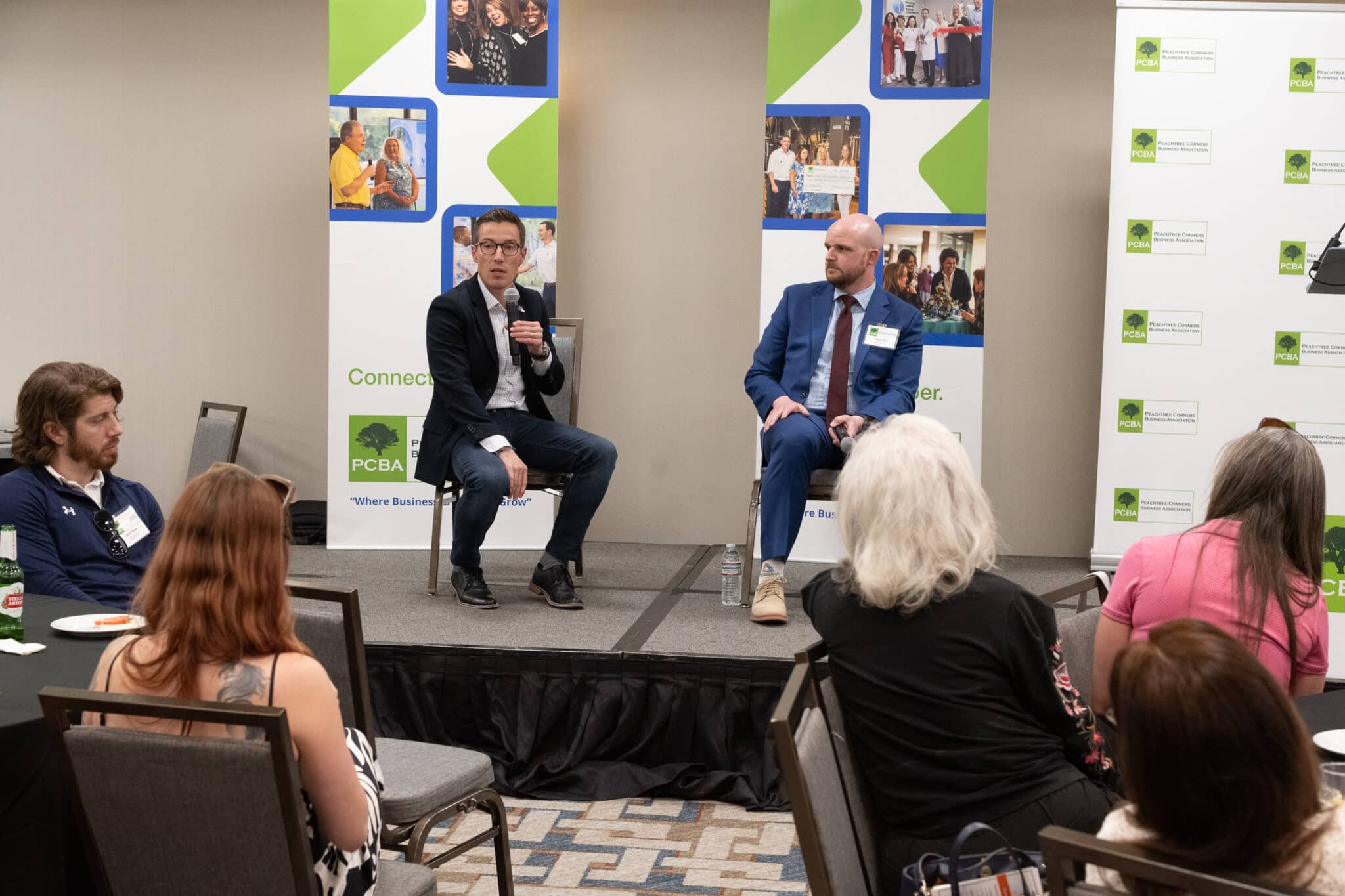
Most residents and business owners in Peachtree Corners probably think they know all about the economic development and strategic planning of Peachtree Corners, but do they really?
Peachtree Corners Business Association invited Peachtree Corners Economic Development Director Betrand Lapoire and Partnership Gwinnett Director of Economic Development Andrew Hickey to its After Hours Speaker Series on March 27 to discuss the city’s growth from a 1971 master plan to a bustling city with 42,000 inhabitants and 40,000 jobs.
Key points included the importance of business retention and expansion, with 24 projects last year creating 1,600 retained jobs, 1,600 new jobs and $250 million in new capital investment.
The Curiosity Lab, a world-class innovation center, was emphasized as a significant attraction. The city’s zoning and infrastructure plans were also discussed, focusing on balancing office and residential development to maintain a vibrant, sustainable community.
Matching jobs to residents
Although Peachtree Corners is just a teenager in terms of being an incorporated city, the foundation for this vibrant, fast-paced economic hub was laid more than 50 years ago by technology pioneer Paul Duke.
“Peachtree Corners was the first master-planned, business innovation technology park in metro Atlanta,” said Lapoire. “It was in response to the brain drain of technology with Georgia Tech graduates leaving the area.”
While the city may have a small-town feel, it’s the largest in Gwinnett County by population, but not land mass, he added.
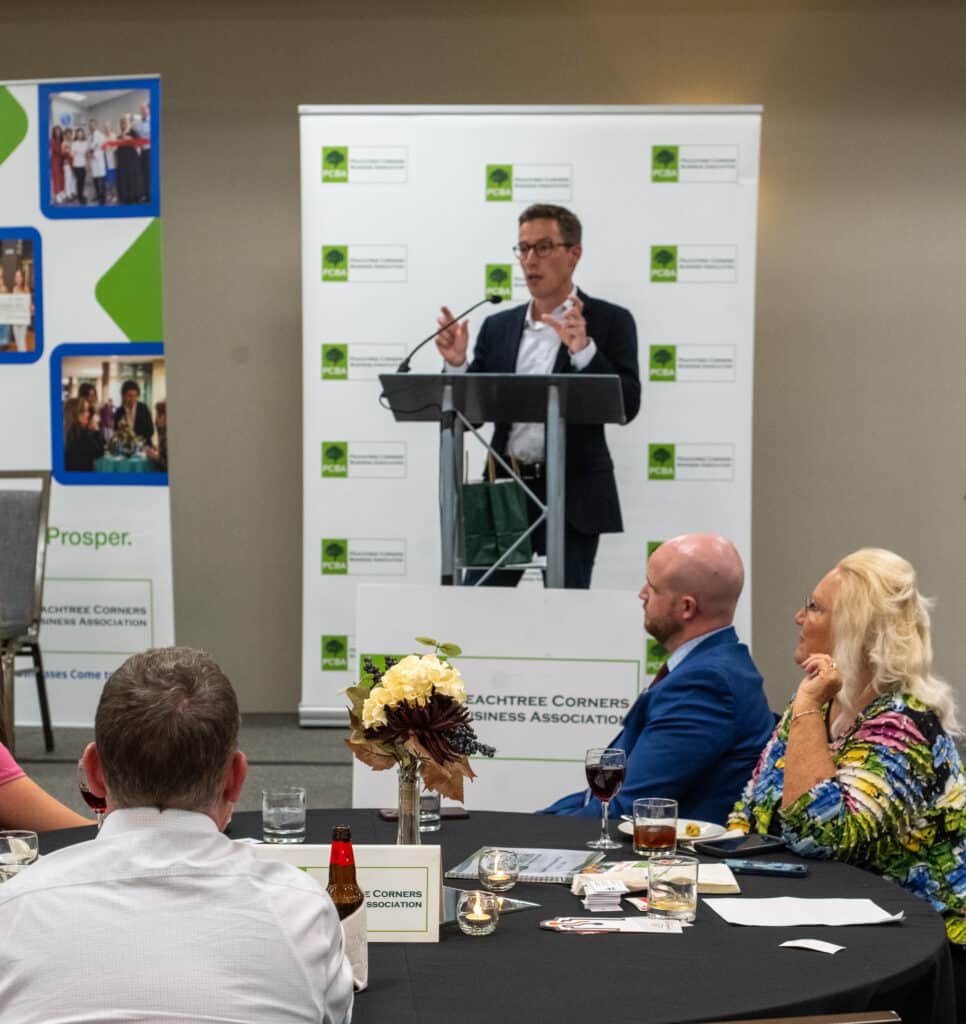
“The city started from a commercial, industrial, R&D base and then was expanded around it,” said Lapoire.
Though home to more than 42,000 residents, most of the jobs in Peachtree Corners are filled by people who live outside the city, he added.
“So we have this interesting mismatch, in a way, although not unusual,” said LaPoire. That creates traffic and transit issues. So that means that one of the solutions is to create more jobs here to fit the profile of the community.”
He presented charts that show professional services, consulting and engineering as the largest job categories. The next tier of businesses are wholesale and manufacturing.
“So we have a good mix of industry,” he said.
A five-year plan
The city has a five-year economic development plan (2023-2028) that outlines strategies for attracting and retaining businesses, with education and workforce development being key components.
Partnership Gwinnett has similar goals as Peachtree Corners, but on a larger scale.
“We are the county’s sales and marketing arm for all 17 cities now, and we receive funding from both municipal sources as well as existing businesses here — both in Gwinnett and outside of Gwinnett as well,” said Hickey.
He shared how Partnership Gwinnett is designed to drive a lot of major corporations toward doing business inside and with Gwinnett County.
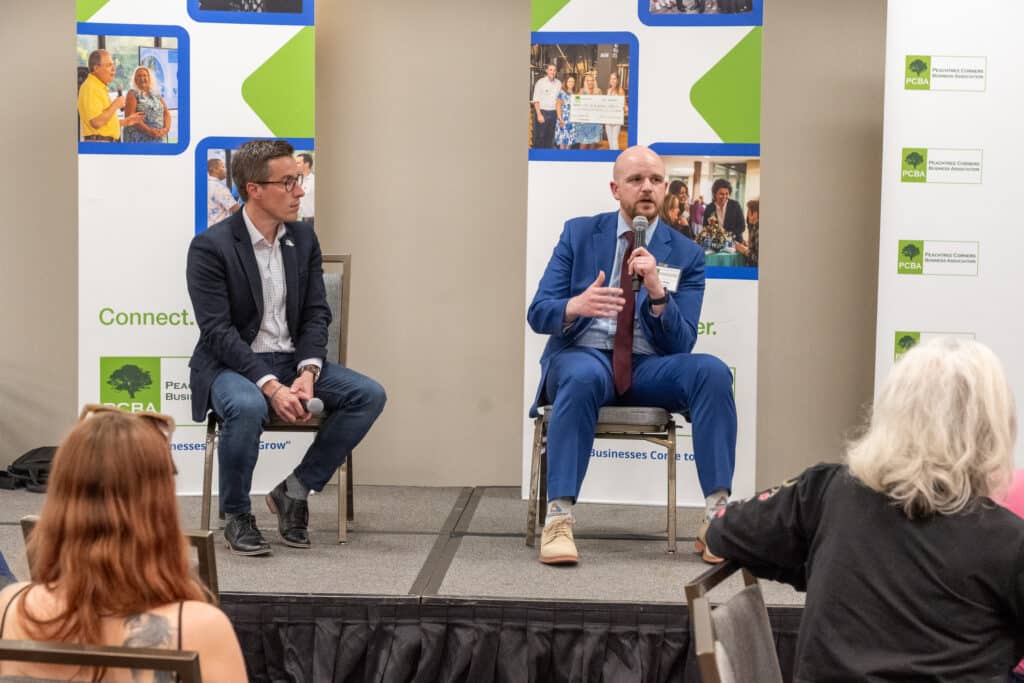
“One of the biggest things that we talk about that I’m sure it seems like most of us here, if you live here, you work here, you understand it. It’s the diversity that exists here in Gwinnett,” he said. “With a diversity index of 85, that means if we walk out of the Hilton here and we say hello to somebody, there’s an 85% chance they’re from a different ethnic or cultural background than ourselves, which to you and I may seem normal because that’s the life that we live in.”
He added that for companies, there’s a tremendous value in that, whether they have stated values, or they’re just making hiring decisions to get a wide range of candidates to fill those roles. Additionally, because of the proximity to Atlanta, Gwinnett County has a great labor draw.
Partnership Gwinnett
Partnership Gwinnett plays a significant role in recruiting businesses, expanding existing companies and developing the workforce. Hickey showed how the organization was involved with more than 24 projects last year.
“A majority of those were expansions, and that is a common thread you’ll see in economic development,” he said. “In business retention, expansion is so vital to working with our existing companies to make sure that they have the resources they need.”
He added that’s what leads to new investment and job creation in the community.
The organization also focuses on redevelopment projects, working with cities and the county to improve infrastructure and community amenities — especially strong educational institutions such Georgia Gwinnett College, Philadelphia College of Osteopathic Medicine and others.
Quality of life
In closing, both men stressed the importance of recruiting companies and developing the workforce, along with one aspect that means a lot but may not be as obvious — quality of life.
“It’s definitely evident that people like to work where they live — the whole live, work play experience,” said Hickey. “I joke that the part that people really have the most questions about, and are most excited to learn about, is new events at The Forum or Gwinnett Place Mall.”
Although they want to know what’s the next major company coming to Gwinnett, people REALLY want to know about how to spend their leisure time.
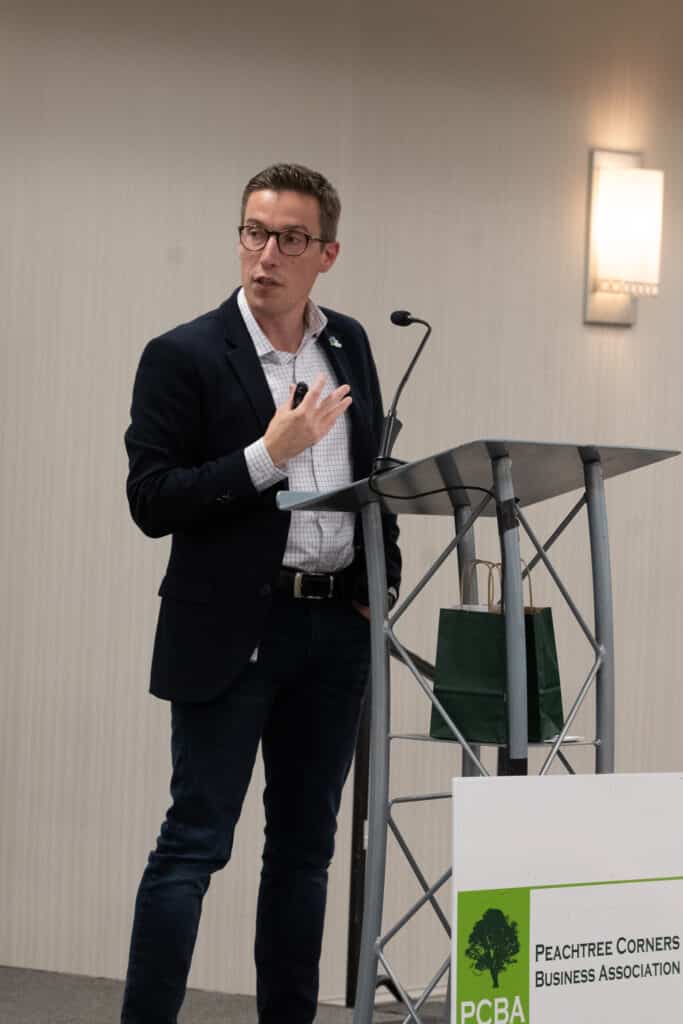
“That speaks to the importance of ensuring that we have a great community,” he said. “So at Partnership Gwinnett we work with all of our cities, and the county government as well, [on] a kind of a best-practices trip.”
He added that the peer tour allows everyone to know what the neighboring communities are doing and share the good news.
“We will take all of these elected officials, but also city staff, to different cities across the Southeast,” he said. “Last year, I believe they went to Huntsville, and have been to Greenville, Chattanooga — all cities that have done some really cool redevelopments that have taken their city to the next level. Our goal is to learn from them.”
Related
Business
Two Peachtree Corners Business Leaders Named Finalists for EY Entrepreneur Award
Published
3 weeks agoon
April 23, 2025
Ernst & Young’s Entrepreneur Of The Year celebrates ambitious entrepreneurs who are shaping the future
Ernst & Young LLP (EY US) recently announced the finalists for the prestigious Entrepreneur Of The Year 2025 Southeast Award, and two local, Peachtree Corners business leaders — David Quirk, president and CEO of DLB Associates Consulting Engineers PC and Erin Hanson, founder and CEO of Guardian Sports — made the list.
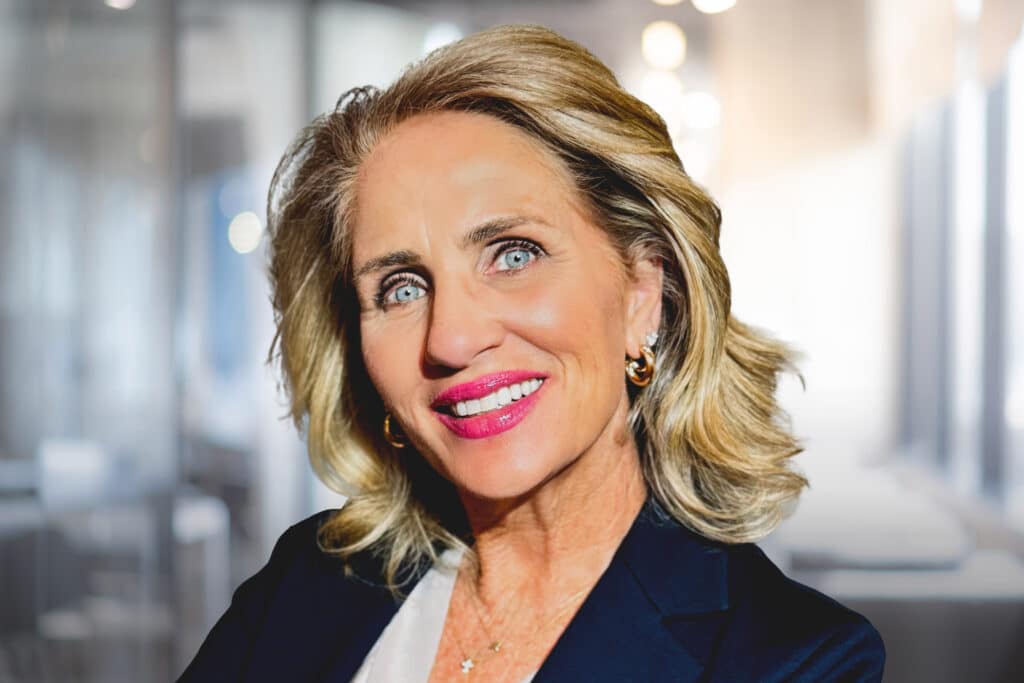
Hanson’s Guardian Sports is a family-owned company dedicated to serving athletes through safety and performance improvements in sports equipment. Major products include the Guardian Cap, PEARL ball and Guardian Infill serving the sports industry.
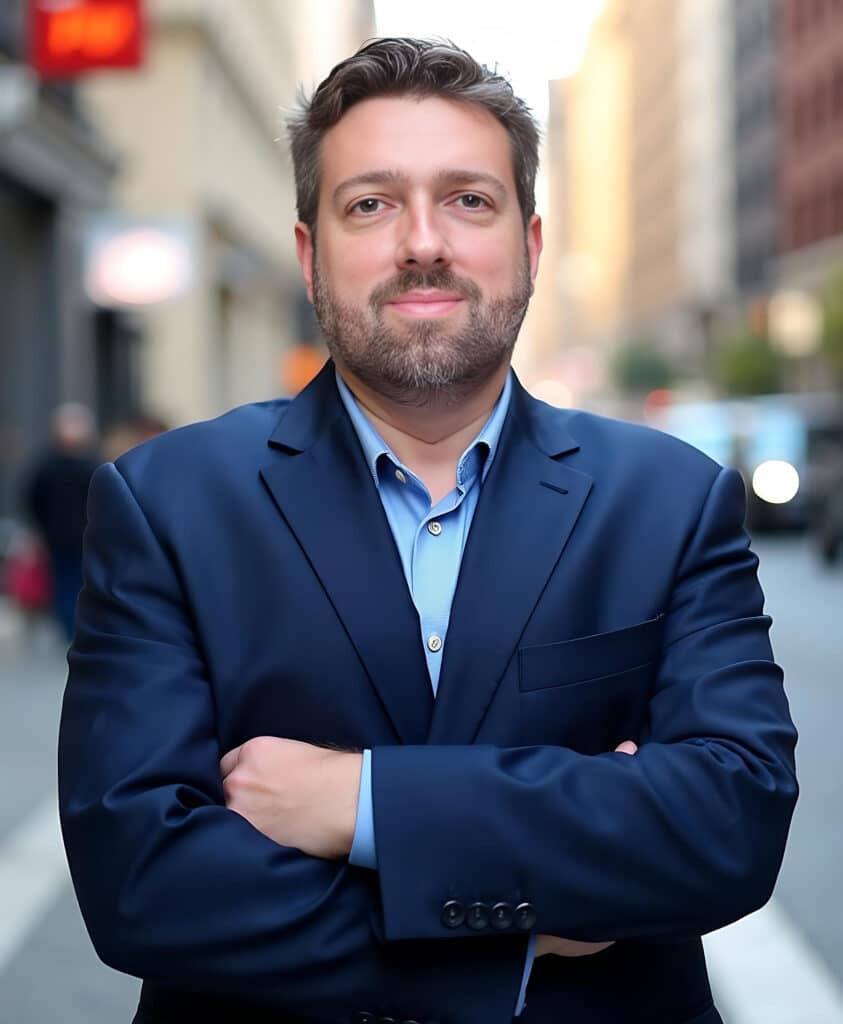
DLB Associates is a U.S.-based consulting engineering firm specializing in mission-critical and complex built environments. With more than 40 years of expertise, DLB delivers innovative, technology-driven solutions in engineering, commissioning and operations worldwide.
Celebrating entrepreneurial leaders
Now in its 40th year, Entrepreneur Of The Year recognizes the bold leaders who disrupt markets through the world’s most ground-breaking companies, revolutionizing industries and making a profound impact on communities. The program honors those entrepreneurs whose innovations shape the future and pave the way for a thriving economy and a hopeful tomorrow.
The Southeast program celebrates entrepreneurs from Alabama, Georgia, North Carolina, South Carolina and Tennessee.
An independent panel of judges selected 36 finalists for their entrepreneurial spirit, purpose, growth and lasting impact in building long-term value.
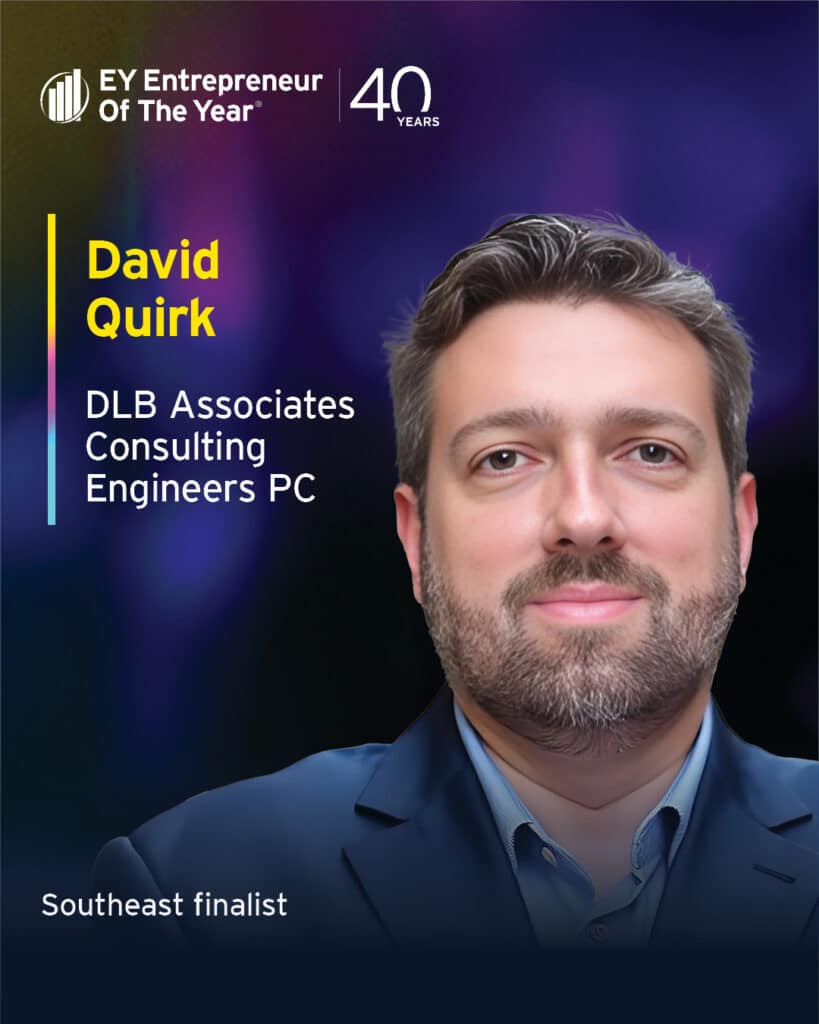
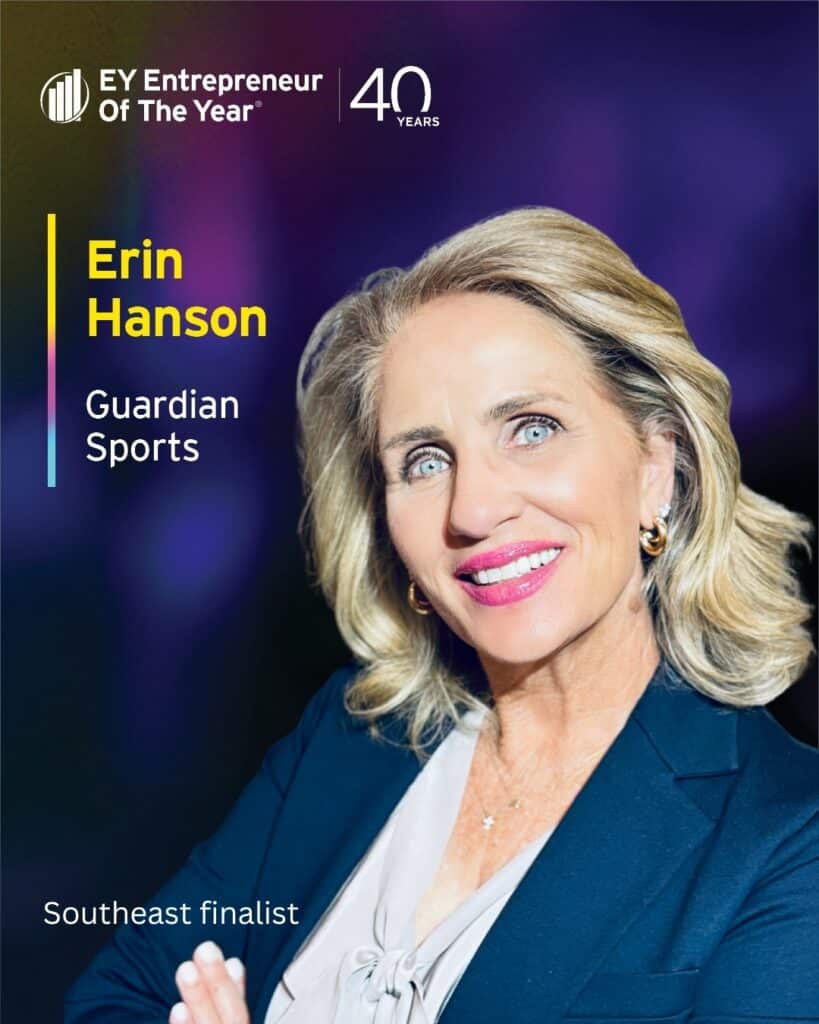
“This year’s finalists are leading examples of innovation, perseverance and resilience, illuminating paths to a brighter future for their industries and communities,” said Chevy Arnold, Entrepreneur Of The Year Southeast Program co-director.
“Their commitment to excellence transforms challenges into opportunities, inspiring us all,” added Kimberly Kicklighter, Entrepreneur Of The Year Southeast Program co-director.
Entrepreneur Of The Year honors many different types of business leaders for their ingenuity, courage and entrepreneurial spirit.
The program showcases original founders who bootstrapped their business from inception or who raised outside capital to grow their company; transformational CEOs who infused innovation into an existing organization to catapult its trajectory; and multigenerational family business leaders who reimagined a legacy business model to strengthen it for the future.
Including Quirk and Hanson, the 2025 Southeast finalists are:
- Marc Hodulich | 29029 | Atlanta, Georgia
- Damon Stafford | Alpine Intel | Charlotte, North Carolina
- Lou Hensley | Aspida | Durham, North Carolina
- Matthew Dent | Buffalo Rock Company | Birmingham, Alabama
- Melanie Little | Colonial Pipeline Company | Alpharetta, Georgia
- Will Bartholomew | D1 Training | Franklin, Tennessee
- Rene Diaz | Diaz Foods | Atlanta, Georgia
- David Quirk | DLB Associates Consulting Engineers PC | Peachtree Corners, Georgia
- Markus Scott | EyeQ Monitoring | Atlanta, Georgia
- Jon Gosier | FilmHedge | Atlanta, Georgia
- John Fitzpatrick | Force Marketing | Atlanta, Georgia
- Dr. Barry Patel | Galt Companies | Atlanta, Georgia
- Dr. Wade Smith | Galt Companies | Atlanta, Georgia
- Charles Gillespie | Gambling.com Group | Charlotte, North Carolina
- Kevin McCrystle | Gambling.com Group | Charlotte, North Carolina
- Mike Griffin | Griffin Brothers Companies | Cornelius, North Carolina
- Erin Hanson | Guardian Sports | Peachtree Corners, Georgia
- Dan Beem | Hissho Sushi | Charlotte, North Carolina
- Aaron Siegel | Home Team BBQ | Charleston, South Carolina
- Marc Murphy | Ignite Digital Services | Charleston, South Carolina
- Miller Chalk | Inglett & Stubbs, LLC | Mableton, Georgia
- Liza Rodewald | Instant Teams | Southern Pines, North Carolina
- Stephen Andresen | McClancy Foods & Flavors | Fort Mill, South Carolina
- Travis LeFever | Mission Mobile Medical Group | Greensboro, North Carolina
- Cyrus Mojdehi | Northway Homes | Charlotte, North Carolina
- Connor Ryan | NutraSky | Alpharetta, Georgia
- Fritz Owens | OTR Solutions | Roswell, Georgia
- Christopher Chuang | Relay, Inc. | Raleigh, North Carolina
- Kurt Jacobus | restor3d, Inc. | Durham, North Carolina
- Tom Kendrot | Shearwater Health | Nashville, Tennessee
- Teak Shore | Southern Lighting Source | Cumberland, Georgia
- Cindy Eckert | Sprout Pharmaceuticals | Raleigh, North Carolina
- Bryan Moore | TalkShopLive Inc. | Nashville, Tennessee
- Tina Moore | TalkShopLive Inc. | Nashville, Tennessee
- Igor Marinelli | Tractian | Atlanta, Georgia
- Joan Butters | Xsolis | Franklin, Tennessee
You can learn more about the finalists at ey.com/en_us/entrepreneur-of-the-year-us/southeast/winners-finalists.
Regional award winners will be announced on June 25 during a special celebration. The winners will then be considered by the national independent panel of judges for the Entrepreneur Of The Year National Awards, which will be presented in November at the annual Strategic Growth Forum®, one of the nation’s most prestigious gatherings of high-growth, market-leading companies.
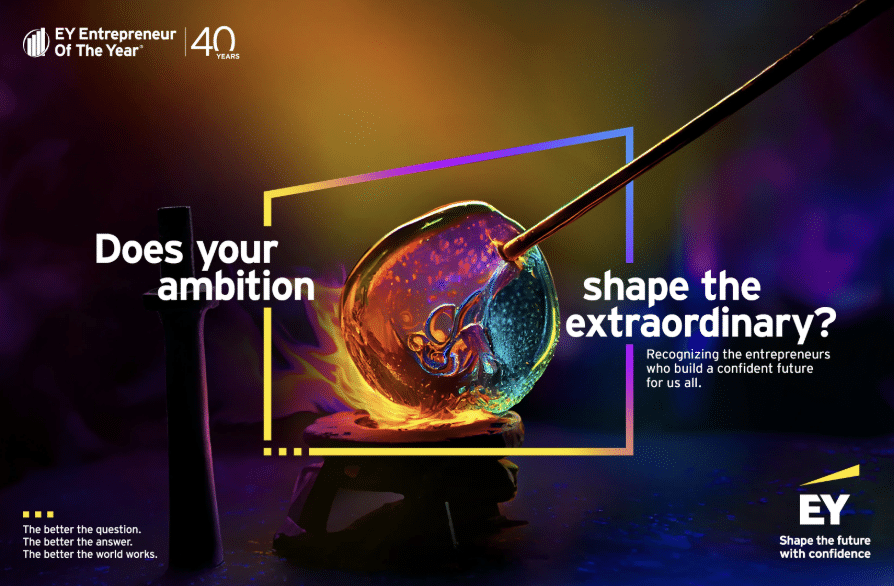
About Entrepreneur Of The Year
Founded in 1986, Entrepreneur Of The Year has celebrated more than 11,000 ambitious visionaries who are leading successful, dynamic businesses in the U.S., and it has since expanded to nearly 60 countries globally.
The U.S. program consists of 17 regional programs whose panels of independent judges select the regional award winners every June. Those winners compete for national recognition at the Strategic Growth Forum® in November where national finalists and award winners are announced.
The overall national winner represents the U.S. at the EY World Entrepreneur Of The Year™ competition.
For more about the award, visit ey.com/us/eoy.
Related
Business
SCB Construction Group Partners with CGA Reps on New Peachtree Corners HQ
Published
4 weeks agoon
April 15, 2025
SCB Construction Group, freshly rebranded from SteelCo, secures construction project with CGA Reps for new office HQ in Peachtree Corners
SCB Construction Group has announced a strategic partnership with CGA Reps to build a new office headquarters in Peachtree Corners. The project, encompassing approximately 26,000 square feet of innovative workspace, marks a significant milestone in advancing CGA Reps’ corporate vision while showcasing SBA Construction Group’s commitment to delivering transformative construction solutions.
In collaboration with Oakley Real Estate Partners — serving as developers of the project on behalf of CGA Reps — this venture reflects a united effort to bring cutting-edge design (from Smallwood architecture firm) and operational excellence to the commercial kitchen equipment industry.
The announcement follows several high-profile projects for SCB Construction Group in 2024, including a 72,500-square-foot manufacturing center and headquarters for Process Equipment & Controls, an impressive interior build-out for Courtesy Ford Conyers’ commercial service center and the Phase 1 completion for StoreEase Loganville — recently honored as a 2024 Smart Facility of the Year by Modern Storage Media.
A bold new chapter for CGA Reps
The new 25,890-square-foot headquarters is designed to be more than just a workplace — it is envisioned as an inspiring environment that serves both client engagements and employee creativity. CGA Reps is recognized as an industry expert in commercial kitchen equipment, representing leading manufacturers, warehousing, distributing and installing everything from fryers to commercial walk-in freezers.
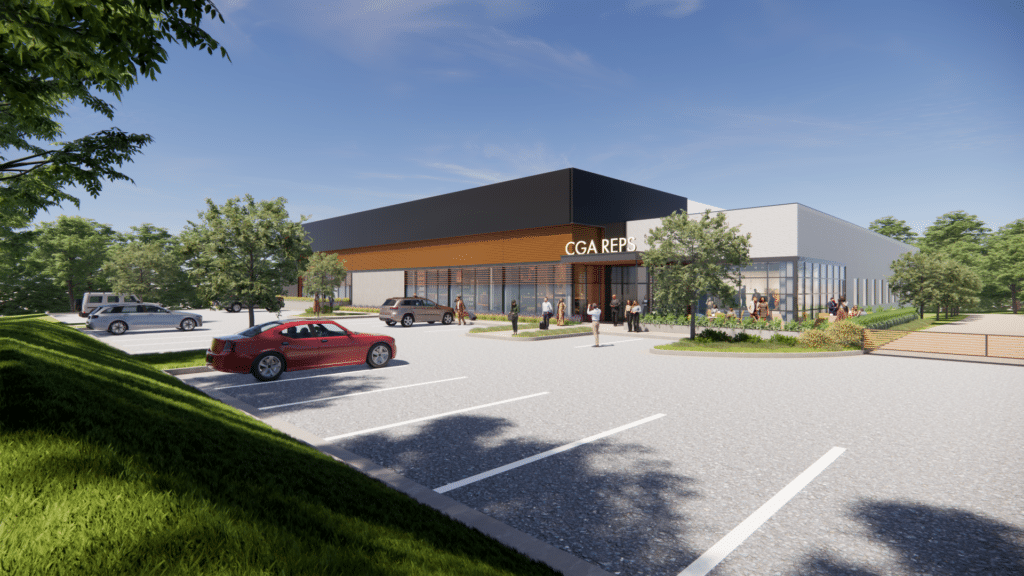
The facility’s design reflects this expertise, featuring a dedicated approximately 9,000-square-foot showroom kitchen that will host equipment demonstrations, tradeshows and webinars. This dynamic space will allow CGA Reps to showcase its comprehensive product range and provide clients with hands-on experiences of the latest commercial kitchen innovations.
A standout feature of the project is its innovative approach to stormwater management. With the site comprising only three acres, sufficient space for a traditional detention pond does not exist. To overcome this challenge, the design includes an underground detention system located beneath the truck court to efficiently handle all stormwater runoff.
This solution not only maximizes the use of the available land but also reinforces CGA Reps’ commitment to sustainable practices.
“We are excited to embark on this project with CGA Reps,” said Jay Bailey, CEO of SCB Construction Group. “This partnership underscores our commitment to customer excellence in design and construction, and it is a testament to the trust our clients place in our ability to deliver projects that not only meet but exceed expectations.”
Delivering excellence through proven expertise
SCB Construction Group’s track record in 2024 has been nothing short of remarkable. Earlier in the year, the company completed a 72,500 square foot manufacturing center for Process Equipment & Controls, integrating office space within a dynamic production facility.
This project was celebrated for its innovative design that balanced operational efficiency with a modern aesthetic, utilizing IMP panels to mimic tilt-up concrete, setting new standards for manufacturing environments.
Similarly, the interior build-out for Courtesy Ford Conyers’ commercial service center demonstrated SCB Construction Group’s ability to transform conventional spaces into functional and attractive environments that cater to both customer and staff needs.
The company’s commitment to quality and precision was again evident in the successful Phase 1 completion for StoreEase Loganville. This project, which recently earned the distinction of a 2024 Smart Facility of the Year by Modern Storage Media, highlights SCB Construction Group’s forward-thinking approach to construction and design, incorporating smart technologies and design that enhance sustainability and operational efficiency.
A rebranding that reflects a vision for the future
In a move that signals its evolution and growth, SCB Construction Group has recently rebranded from its former identity, SteelCo Buildings, as it spins off its construction division. This strategic rebranding is not merely cosmetic — it represents a renewed commitment to capabilities, credibility and client-focused service.
The refreshed brand is anchored by a new tagline “Deep Expertise, High Expectations” and a clear brand promise that communicates the company’s mission: to craft exceptional construction experiences based on precision, innovation and trust.
“Our rebranding is about more than just a new name or logo; it’s a renewed promise to our clients and communities,” explained Robert Lee, marketing director at SCB Construction Group. “We believe that our updated brand identity, including our invigorated tagline and mission statement, encapsulates our dedication to pushing the boundaries of design and construction. It reflects our commitment to creating spaces that are as inspiring as they are functional.”
Transforming spaces to inspire and connect
The new headquarters for CGA Reps is expected to become a landmark facility in Peachtree Corners. Beyond its impressive architectural design and advanced construction techniques, the building is planned as a hub for innovation and collaboration.
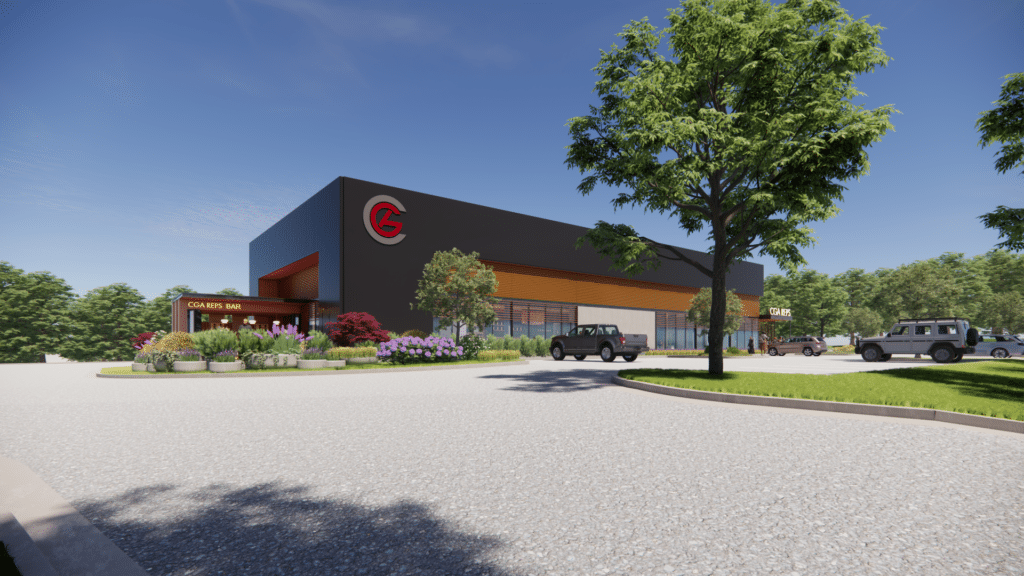
The interior build-out will include dynamic client reception areas, interactive meeting rooms, and dedicated spaces designed to foster creativity and teamwork among employees. The layout is crafted to ensure that every area of the facility contributes to a productive and inspiring work environment.
“By investing in this state-of-the-art facility, CGA Reps is making a strong statement about the future of work,” said Bryan Young, VP of construction at SCB Construction Group. “Our team is dedicated to designing and building spaces that not only serve the immediate needs of our clients but also create environments that motivate and inspire. The new headquarters will be a testament to that vision.”
Looking ahead
The partnership between SCB Construction Group and CGA Reps marks a significant step forward for both companies. As SCB Construction Group continues to build on its legacy of excellence and innovation, this project is poised to set a new benchmark for modern office headquarters design in the region.
With a strategic focus on creating spaces that inspire, connect and drive success, the future looks promising for both SCB Construction Group and its esteemed partner, CGA Reps.
For more information on the new headquarters project or to learn more about SCB Construction Group’s portfolio, visit scbcg.com.
Related
Read the Digital Edition
Subscribe
Keep Up With Peachtree Corners News
Join our mailing list to receive the latest news and updates from our team.
You have Successfully Subscribed!

Digital Edition

Official City Merchandise Line Debuts This Saturday at Town Green

Paul Duke STEM High School Student Earns CGO Scholarship

World Blood Donor Day Starts Here: Theo’s Miracle, Katherine’s Mission [Podcast]

Executive Function: A Tribute to Working Moms

Peachtree Corners Grows Business Opportunities Through Economic Development

Peachtree Corners Hosts Discussion About the Future of Local Policing

Simpson Elementary Marks Exceptional Children’s Week

Atlanta’s Dog Howl-O-Ween Festival Moving to Peachtree Corners for 2025

D1 Training Brings New Fitness Concept to Peachtree Corners

Peachtree Corners Hosts Discussion About the Future of Local Policing

City of Peachtree Corners Awarded Certificate of Achievement From GFOA for Seventh Straight Year

Simpson Elementary Marks Exceptional Children’s Week

Executive Function: A Tribute to Working Moms

Official City Merchandise Line Debuts This Saturday at Town Green

Peachtree Corners Grows Business Opportunities Through Economic Development

Light up the Corners [Video]

Capitalist Sage: Business Leadership in Your Community [Podcast]

Cliff Bramble: A Culinary Adventure through Italy

Top 10 Brunch Places in Gwinnett County

A Hunger for Hospitality

THE CORNERS EPISODE 3 – BLAXICAN PART 1

Top 10 Indoor Things To Do This Winter

The ED Hour: What it takes to Remove Barriers from Education






